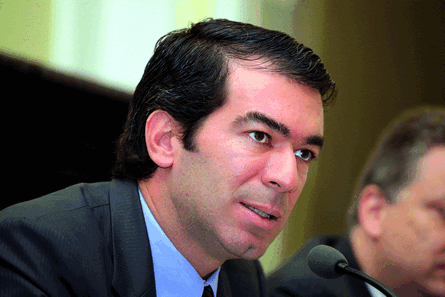The opening of a new, much larger terminal at Jeddah International airport will allow Saudia to move towards a true hub-and-spoke operation for the first time in its 75-year history.
Chief executive Jaan Albrecht says that the new terminal, which is already being used for domestic flights, will fully open at the end of the year and help to accommodate organic growth in traffic from Saudi Arabia, and win back some passengers that have used other hubs in the region.
"We will have three waves every day, up to 35 arrivals and departures within two hours, three hours. So that is a game changer," he says.
Those banks will largely be facilitated by the new terminal having 48 contact gates, whereas the old terminal at Jeddah only had eight gates that required passengers to be bussed to the terminal. Backing that up is three parallel runways, which should allow for an efficient hub operation into Jeddah, although Albrecht admits that there will be some significant scaling up for air traffic control, police and customs agencies to handle that traffic.
The expanded operation at Jeddah will help to wrestle back some passengers that Saudia has lost to the other Gulf carriers. Albrecht expects to gain some connecting traffic as a result - especially between domestic and international markets - but makes it clear that the airline has not ambitions to become a new "super-connector" airline.
"We will take away a little bit of their [market] share but this is not a priority, so we will not be a fourth Gulf carrier, we will be a different – a big, growing, efficient Gulf carrier based on these traffic flows."
The airline will target connecting to markets with significant Muslim populations which bring significant religious pilgrimage traffic, but also appreciate the airline's no-alcohol policy.
"The strategy for the next few years will be to focus mainly on those countries where you have a predominant Muslim population," says Albrecht.
Helping to reach some of those markets will be its growing fleet. Cirium's fleets data shows that Saudia has 20 Airbus A321neos and 15 A321XLRs on order, and Albrecht notes that the additional range of the latter could open up many new markets.
"With these aircraft we will be able to reach basically any destination in Europe nonstop from Jeddah, from Riyadh."
Saudia will also continue to focus on countries such as the Philippines, India and Pakistan where Saudi Arabia sources most of its foreign workers from, while also maintaining a strong focus on religious traffic during the Umrah and Hajj pilgrimages.


























